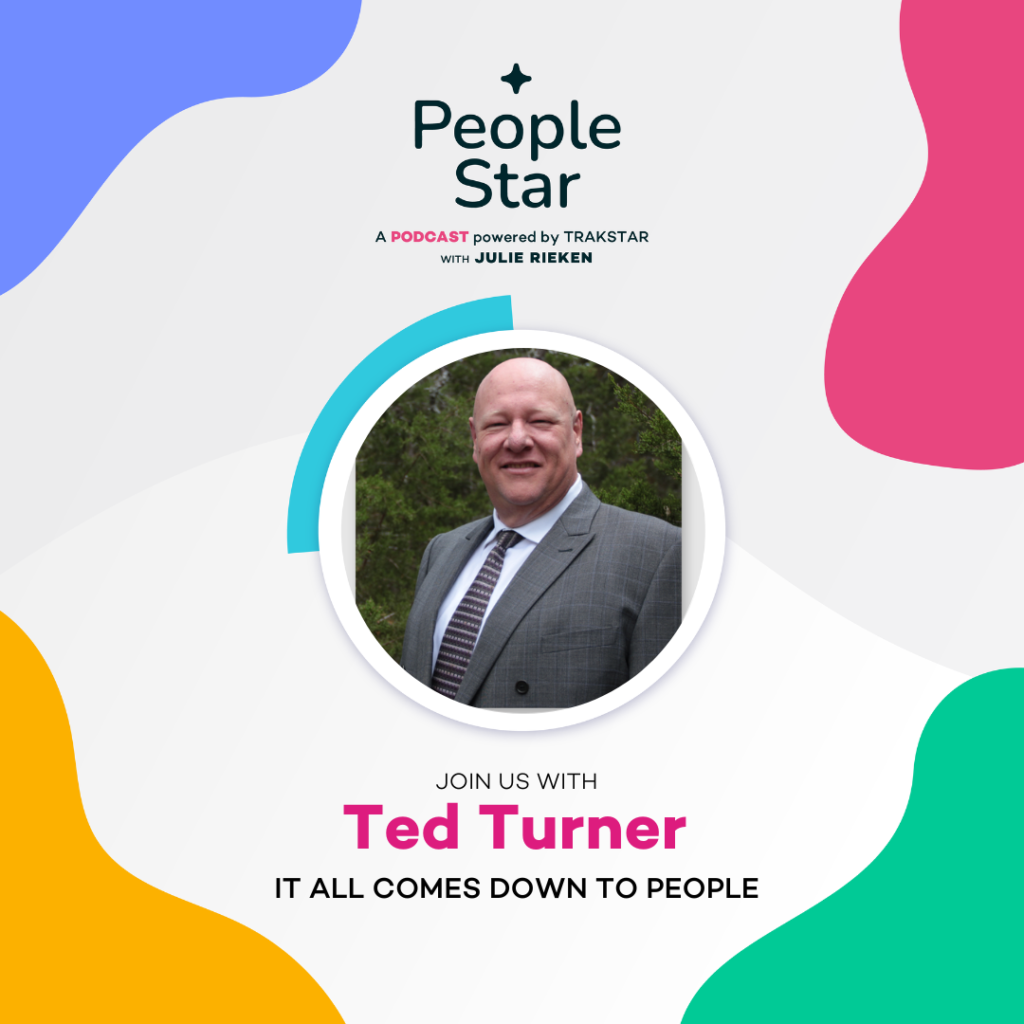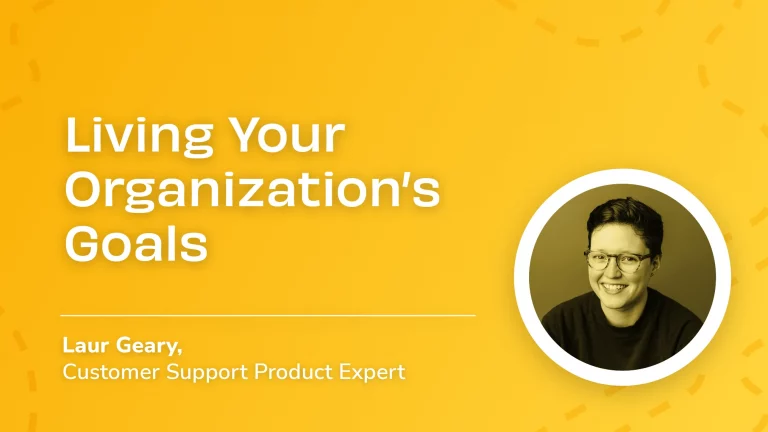PeopleStar_Ted Turner: this mp3 audio file was automatically transcribed by Sonix with the best speech-to-text algorithms. This transcript may contain errors.
PeopleStar Intro/Outro:
Welcome to the PeopleStar Podcast. We deliver leadership perspectives from industry experts on their people, architecture, routines, and culture as they solve HR's newest challenges. And now your host, Julie Rieken.
Julie Rieken:
Hello podcast listeners. Julie Rieken, host of PeopleStar Podcast. You know, this is my favorite hour of the week. Super excited today, got Ted Turner with us. Ted is from the Intelligent Leadership Executive Coaching Institute. Love it because Ted brings some really interesting background. Ted, to cast in a space that we haven't spoken to anyone in this space before. Ted's got 40 years of leadership experience in engineering, construction, and services. And he has successfully managed large, complex projects, multi-million, maybe billion dollars projects in 31 states and 17 countries. And he's got credentials in general engineering, licensing in four states, contractor licensing, certifications from the US Army Corps of Engineers. So basically, Ted, this is an area with someone, you have people expertise in an area that's so interesting, and I'm really excited to talk to you today about some of the things that you've learned in being in these groups through these projects and how you've helped bring people together in these spaces. Welcome!
Ted Turner:
Thank you. I'm glad to be here, Julie. It's, you know, construction engineering space is, is not well-known outside of that space, but there's a millions of people involved doing really impressive things in the construction space. Our infrastructure, the buildings we, we live in and work in, and the highways we drive down and our … infrastructure. It's every project in construction is like running a business, which is really unique. If you're doing a $3-400 million construction project, you're running a $3-400 million business. And people.
Julie Rieken:
….
Ted Turner:
Kind of get the idea that it's just swinging hammers, you know.
Julie Rieken:
So, Ted, I'm thinking a little bit about this, and I'm thinking, you know, when I wake up in the morning, I'm thinking about people in a software company and managing that at a desk, and when you wake up in the morning, that's not what you're thinking about. Tell me, what do you think is the same? I love the swinging hammers analogy and $3-400 million Construction project. What do you think is the same about managing those groups of people? And what do you think is different about managing those groups of people?
Ted Turner:
You know, it all comes down to people, no matter what business you're in, it really does. It comes down to surrounding yourself by the right people, the best people you can find, and then supporting them to be successful in their own part of the world and supporting what they want to do or what success means to them outside of their job. That part's the same. People are drawn to different industries, but basically we're all motivated by the same things. We want a quality of life, we want to feel like we've done something that's worthwhile. We want to feel engaged, we want to feel like we have some impact over our environment. That's the thing, you know, the old saying that it's all about talent. It's always been about talent, it will always be about talent. And so how you treat your people, how you treat people, how you retain people, how you build a team so that they're excited to accomplish things together, that I think is universal in any industry, in any walk of life. What's different is that in construction, we face some unique challenges. We always have a schedule that's driving us. We can be hugely impacted by weather or civil unrest or supply chain, just any number of things. And we are in a high stress, often dangerous environment, physically dangerous. You know, people get hurt in this industry sadly, industries come a long way in keeping its people safe, but that's an extra level of stress that many others don't face. You know, office workers don't face the same challenges as somebody that's working 4-500 feet above ground, walking across an eight inch …. It's just a different atmosphere. And so it takes a different type of person that wants to work outside, doesn't mind working in the cold or in the heat, doesn't mind being physically exhausted at the end of the day. But also remember that in construction projects, especially these big ones, we've got a lot of traditional office people as well. They may have to put on a hard hat when they walk out of their office, but their accountants and their lawyers and their purchasing agents and their insurance people and their finance people. Construction, I deal with youth groups all the time, and I tell them it doesn't matter what you want to do in life, you can do it in construction, so we cover everything.
Julie Rieken:
I just had a moment of being on a beam up above. That was a really good visual, Ted, thank you for that. I'm thinking a little bit about there, it does come down to people and yet part of your background, you said you've managed projects across different countries and in different states and I can't help but think a little bit about when you bring big projects together across, whether it's geography or states, there's got to be cultural elements that are a challenge when you bring those things together. It's it's hard enough, I think, when I think about our space, just being remote. How do I bring together a US-based team of remote people? It's tough, but you've done something I think that's even more challenging. Can you talk a little bit about culture and bringing teams together across something even larger, …, civil unrest? Just tell us about that. How do you think about it?
Ted Turner:
Well, there's just so many stories that I can tell, but your premise is right. In these megaprojects, and we're not just talking $3-400 million projects, we're talking 2, 3, 4 or $5 billion projects. And they're not all in your backyard, they're all over the world, and the talent exists all over the world. So you're often pulling people from several different countries, different cultures, different primary languages, different religions, different education levels, and bringing them all together as a team and often dropping them into another country where none of them have ever been before. So how do you get these people to be a team? How do you get them to support each other, to recognize each of their strengths? And I think just as importantly, to deal with each other's weaknesses, with grace and patience, that can be a really tough thing to do. And the cultural differences, you know, there are parts of the country where some of the just the very basics of American culture just don't apply. We talked earlier about the safety aspect. In, in the Western world and in the United States especiallyhat is just such a driver in a construction project. And I had a project not long ago, a large project, with a foreign company with some facilities here in the United States. And we're going through the project kickoff meeting. And those from this company here in the US division are stressing how important safety is. Safety is number one on this project, you go on and on about safety. Well, one of the big wheels from from the other country, the main owners of this, we get down to the end and he says, yes, but schedule is number one and we're very adamant about that. And so his folks try to not embarrass each other and. Well, yeah, yeah, yeah, yeah. Schedule is important, we've got to get to market. But again, our main concern, number one, overriding everything is safety. We want to be safe and this guy jumps back in because he obviously has a different priority and says, yes, safety important, but number one, with emphasis, is schedule. So you can see the conflict there between the different cultures. And so you face that a lot. You've got the culture of the team that we've brought together. You've got the culture of the team that the client has brought together in the country where the is going to happen. And then you have this conflicting overriding culture of the person that they actually ultimately work for, in the ownership company. And so this happens a lot, and how you overcome that really boils down to what is your culture, what is, what truly is your value? No matter what that guy says, our value is keeping our people safe and no matter how he chirps or threatens us financially or otherwise, we have to decide are we going to work with this company and compromise our values, or are we going to not work with this company at all? Or are we going to work with them and be adamant about our values? You talked about civil unrest, and this isn't quite civil unrest, but it's close enough. We've done a lot of projects in in South America. There's often drug cartel wars going on. And I remember one particular project where our trucks in the middle of the night would, would disappear and they'd be back in the morning and to keep our people safe we started to have some security out there and started to talk to the local area authorities. And we had a, we had a meeting where people that didn't identify themselves, but they clearly identified who they were, came and told us, we're going to use your vehicles at night. They're going to be back here for your use. And that's just the way it's going to be or your people are going to start disappearing.
Julie Rieken:
Ted!
Ted Turner:
Different attitudes, right? So what do you do there? Well, we're going to keep our people safe. And that means working with ….. We walk away from the job. You know, there's been other places where it's just been a different concept. Maybe not that clearly, but but the folks don't want to be safe. Our subcontractors, is, we always hire locals to do the work. They just don't want to be safe, they don't want to spend the money. So do we live by our credo? Do we take the money out of our profit and put in the safety systems? Or do we say, oh well. Well, no, we're not going to adopt a different culture because we're in a different place. We spent the 3-4 million extra dollars that we had and counted on for safety systems that our subs should have been responsible for their own people, weren't. So there are some unique challenges when you build a scale and when you bring in all those different cultures. But that's, that's, let me put it this way, I put it to somebody else. We were having some cultural clashes on a job site. And I said, look, this project is big enough for everybody's culture, right? There's a place for everybody's culture, but there is also a project culture …
Julie Rieken:
Oh my gosh! That's not where I thought you were going. I love that, a project culture.
Ted Turner:
It has to be. It has to be. And there's room for all of us. But when there's a conflict, the company or the project or the, or the back culture has to prevail, it has to prevail. I mean, people get off on silly things. Well, his food stinks. Well, okay, you know what? That's what they eat in his country. To him, it smells great. That's not, let's not boil down to silly little things like that, you know, but it can if you don't have this overarching culture of respect, of acceptance, of, of accountability, responsibility, bring all the things that make you you into our into our project, but then there is a project culture.
Julie Rieken:
Gosh, I love that because when you were telling the safety and the schedule story, I was going to ask you, well, how did you resolve that? Because that feels like loggerheads. Those are two really important priorities and you've just established a project culture. So when you bring together entities, Ted, how do you help organizations find what that is so that they can bring these teams together? How do you help people? How should HR people think about it? Leaders, people like you? How should we think about bringing things like that together?
Ted Turner:
You know, there's a saying in the medical profession and we use it in the coaching profession too, prescription before diagnosis is malpractice. And so you've got to do some, you've got to do some assessments, that's where I start with folks. Often leadership will feel that maybe something's off in their culture, but they don't know, or often they think their culture is fine, and you do some assessments and some anonymous searching and you find out that the culture in the troops is completely different than what the company thinks it is, it doesn't match what's on the wall. So you've really got to be honest with yourself about what kind of culture you want and what kind of culture you have, and you've got to take ownership of that. Every company has a culture, whether they think they do or not either. They, either they installed the culture they want or it just grew and they're going to have to deal with that. So it's really about honesty, and awareness is the place you start. Oftentimes, well, I shouldn't say often, but certainly it happens, a company will recognize that they've got some issues, they've gotten off track, where they never bothered to establish culture. And the first place we start is with the C-suite and, and are they ready to put in the effort? Are they ready to accept change and build a culture that they need? It's not always about the culture you want. It's about the culture you need to survive and thrive. And so again, being honest with themselves, sometimes we've got to start there, do some remedial work. You've got a great idea, you recognize there's a problem, but your leadership team, your executive board, whatever it is, they're not ready to drive this change.
Julie Rieken:
What are the signs of a C-suite being ready and what are the signs of a C-suite not being ready? How would you know if you're ready? Because I think we all as C-suiters believe, oh, yeah, we're ready, yeah.
Ted Turner:
Right.
Julie Rieken:
That's the right answer.
Ted Turner:
Really, there's a reason I'm in this seat.
Julie Rieken:
We're, we're adaptable, we're change managers, we're ready. So what? What do you see? What are the visible signs of readiness or not readiness to accept, accept change or …?
Ted Turner:
So some of it boils down to whether they accurately see the organization or not. When I'll come in, I'll, I'll do some that. I'll do some assessments with the C-suite, but also everybody in the company. And if the perception, if the C-suite has a, has just a perception of the culture or the people or their talents, that is just completely off from reality, that's a problem. So maybe you have to take just a short step back, maybe you've got some leadership that will accept facts when they see them, but often you'll have people that want to believe what they believed, right? People have an emotional connection to their beliefs. And so, when we get that data and we sit down with the C-suite, that's one of the things we look for. Do they have an accurate picture of what's going on in their organization, or do they not? Do they have a consistent perception among themselves? Often you'll see that the, you take that leadership people, leadership team, maybe it's five people, maybe it's ten, and sometimes you'll see that they're all aligned and maybe they're all aligned with what reality is, or maybe they're all aligned, completely disaligned with what reality is. But sometimes you'll see that all ten of them have a different idea, they're not aligned. You know, we talk about alignment so often in HR and everything talks about that. And I think today the catch phrase is employee optimization, right? We find new ways to call the same old things so they sound new, but it's all alignment. So if that C-suite isn't aligned, you've got a mess. So those are the things you're looking for. Do they have a accurate perception of what the company is? Do they have the same perception? Are they vulnerable enough? And by vulnerability, I mean basically teachability, humility. Are they vulnerable enough to realize that they may not have all the answers and that some wonderful stuff can come out of anywhere in their team? Are they ready to embrace change? Are they ready to learn or do they think they've got it all figured out? So those are some of the big things that you look for.
Julie Rieken:
That's amazing. Okay, now I'm going to put you on the spot and let's wrap up.
Ted Turner:
Got to go.
Julie Rieken:
Hang on, hang on. This is a good one. Okay, here's a C-suite, you've got to provide some feedback that there's some misalignment. How do you phrase it? What do you say?
Ted Turner:
You know.
Julie Rieken:
And then what's the right response from the C-suite?
Ted Turner:
Yeah, you know, the old saying that you get more flies with honey than with vinegar, that's true. No matter where people are, they have their own insecurities and people don't like to be challenged, it's a real gift. It's fun when you are dealing with a group that has maybe they faced enough adversity and things aren't working. That, man, they're ready for anybody to throw a lifeline. They're ready to hear what it is good, bad and ugly, and that's great. But you need to be honest, I, I kind of phrase it as having a backbone tempered by compassion. It's not my job to mislead or lie or sugarcoat anything. I'm not doing my job if I'm not honest with the people that I'm working with. So I always want to leverage the strengths. You've got strengths, let's not abandon them, but also fill the gaps. And so I'll talk about both, I'll talk about both the strengths and the gaps. And just as a picture of the company, not of anybody's personal derailing tendencies or whatever it may be, if we need to work on those, we'll work on those in another format. But I give them the honest picture. This is what the data tells us. But then I also recognize that they have information the data can't reveal. So we temper that, right? This is what the numbers show us, this is what we're hearing back, this is what we see, and then we open a dialogue. I don't go in there with these are all the things you have to change because you guys are correct. I go in there with this is the situation, this is what I see.
Julie Rieken:
Yeah, that's better, honey.
Ted Turner:
Yeah, it could mean this, it could mean that. What do you see? Why do you think we're getting this reaction from such a huge percentage of your workforce? And usually that, and sometimes I have to draw it out more than other times, but usually that elicits that conversation. If they've gotten that point where they brought me in, at least the powers that be recognize they need some help, right? There may still be resistance from the rest of the team. But if, if the, if the board of directors or the CEO sees no need for change, I'm not going to be there, they're never going to reach out to me, right? So I'm there to do a job. And my job isn't to point out all the things they're doing wrong, my job is to lead them to become stronger. And on course of that we will see the things that are detrimental and we'll see the things that are positive. But we approach it as a team, as a conversation, and we figure out, okay, what's working, what isn't, why is it working, why isn't it working? What do we have to do to set a foundation of success?
Julie Rieken:
This been really helpful. Ted, I love that. I'm just thinking about executive teams that I'm on, that other, the other of other executive teams and how we hear things and receive things and what we perceive and what's actually real and just really appreciate that pro that you're delivering. So podcast listeners, Ted Turner. Ted, thank you for sharing expertise with us today on how to think about culture, some of the things that we'll, that we'll encounter and how you help people think about bringing pieces together. I love it. Super great.
Ted Turner:
Thank you, Julie. I enjoyed it, I had a great time.
PeopleStar Intro/Outro:
Thanks for listening to the PeopleStar Podcast. For the show notes, transcript, resources, and more ways to get a seat at the table, visit us at TrakStar.com/Podcast.
Sonix has many features that you’d love including automated subtitles, enterprise-grade admin tools, secure transcription and file storage, advanced search, and easily transcribe your Zoom meetings. Try Sonix for free today.




